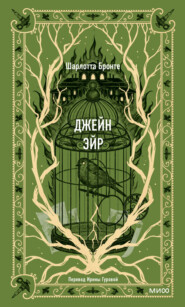По всем вопросам обращайтесь на: info@litportal.ru
(©) 2003-2024.
✖
Shirley
Настройки чтения
Размер шрифта
Высота строк
Поля
“Then why do you go on with it? Put it down. Read, or do something to amuse you.”
“It is solitary in this house, Fanny. Don’t you think so?”
“I don’t find it so, miss. Me and Eliza are company for one another; but you are quite too still. You should visit more. Now, be persuaded: go upstairs and dress yourself smart, and go and take tea, in a friendly way, with Miss Mann or Miss Ainley. I am certain either of those ladies would be delighted to see you.”
“But their houses are dismal: they are both old maids. I am certain old maids are a very unhappy race.”
“Not they, miss. They can’t be unhappy; they take such care of themselves. They are all selfish.”
“Miss Ainley is not selfish, Fanny. She is always doing good. How devotedly kind she was to her stepmother as long as the old lady lived; and now when she is quite alone in the world, without brother or sister, or anyone to care for her, how charitable she is to the poor, as far as her means permit! Still nobody thinks much of her, or has pleasure in going to see her; and how gentlemen always sneer at her!”
“They shouldn’t, miss. I believe she is a good woman. But gentlemen think only of ladies’ looks.”
“I’ll go and see her,” exclaimed Caroline, starting up; “and if she asks me to stay to tea, I’ll stay. How wrong it is to neglect people because they are not pretty, and young, and merry! And I will certainly call to see Miss Mann too. She may not be amiable, but what has made her unamiable? What has life been to her?”
Fanny helped Miss Helstone to put away her work, and afterwards assisted her to dress.
“You’ll not be an old maid, Miss Caroline,” she said, as she tied the sash of her brown silk frock, having previously smoothed her soft, full, and shining curls; “there are no signs of an old maid about you.”
Caroline looked at the little mirror before her, and she thought there were some signs. She could see that she was altered within the last month; that the hues of her complexion were paler, her eyes changed – a wan shade seemed to circle them; her countenance was dejected – she was not, in short, so pretty or so fresh as she used to be. She distantly hinted this to Fanny, from whom she got no direct answer, only a remark that people did vary in their looks, but that at her age a little falling away signified nothing; she would soon come round again, and be plumper and rosier than ever. Having given this assurance, Fanny showed singular zeal in wrapping her up in warm shawls and handkerchiefs, till Caroline, nearly smothered with the weight, was fain to resist further additions.
She paid her visits – first to Miss Mann, for this was the most difficult point. Miss Mann was certainly not quite a lovable person. Till now, Caroline had always unhesitatingly declared she disliked her, and more than once she had joined her cousin Robert in laughing at some of her peculiarities. Moore was not habitually given to sarcasm, especially on anything humbler or weaker than himself; but he had once or twice happened to be in the room when Miss Mann had made a call on his sister, and after listening to her conversation and viewing her features for a time, he had gone out into the garden where his little cousin was tending some of his favourite flowers, and while standing near and watching her he had amused himself with comparing fair youth, delicate and attractive, with shrivelled eld, livid and loveless, and in jestingly repeating to a smiling girl the vinegar discourse of a cankered old maid. Once on such an occasion Caroline had said to him, looking up from the luxuriant creeper she was binding to its frame, “Ah! Robert, you do not like old maids. I, too, should come under the lash of your sarcasm if I were an old maid.”
“You an old maid!” he had replied. “A piquant notion suggested by lips of that tint and form. I can fancy you, though, at forty, quietly dressed, pale and sunk, but still with that straight nose, white forehead, and those soft eyes. I suppose, too, you will keep your voice, which has another ‘timbre’ than that hard, deep organ of Miss Mann’s. Courage, Cary! Even at fifty you will not be repulsive.”
“Miss Mann did not make herself, or tune her voice, Robert.”
“Nature made her in the mood in which she makes her briars and thorns; whereas for the creation of some women she reserves the May morning hours, when with light and dew she woos the primrose from the turf and the lily from the wood-moss.”
Ushered into Miss Mann’s little parlour, Caroline found her, as she always found her, surrounded by perfect neatness, cleanliness, and comfort (after all, is it not a virtue in old maids that solitude rarely makes them negligent or disorderly?) – no dust on her polished furniture, none on her carpet, fresh flowers in the vase on her table, a bright fire in the grate. She herself sat primly and somewhat grimly-tidy in a cushioned rocking chair, her hands busied with some knitting. This was her favourite work, as it required the least exertion. She scarcely rose as Caroline entered. To avoid excitement was one of Miss Mann’s aims in life. She had been composing herself ever since she came down in the morning, and had just attained a certain lethargic state of tranquillity when the visitor’s knock at the door startled her, and undid her day’s work. She was scarcely pleased, therefore, to see Miss Helstone. She received her with reserve, bade her be seated with austerity, and when she got her placed opposite, she fixed her with her eye.
This was no ordinary doom – to be fixed with Miss Mann’s eye. Robert Moore had undergone it once, and had never forgotten the circumstance.
He considered it quite equal to anything Medusa could do. He professed to doubt whether, since that infliction, his flesh had been quite what it was before – whether there was not something stony in its texture. The gaze had had such an effect on him as to drive him promptly from the apartment and house; it had even sent him straightway up to the rectory, where he had appeared in Caroline’s presence with a very queer face, and amazed her by demanding a cousinly salute on the spot, to rectify a damage that had been done him.
Certainly Miss Mann had a formidable eye for one of the softer sex. It was prominent, and showed a great deal of the white, and looked as steadily, as unwinkingly, at you as if it were a steel ball soldered in her head; and when, while looking, she began to talk in an indescribably dry, monotonous tone – a tone without vibration or inflection – you felt as if a graven image of some bad spirit were addressing you. But it was all a figment of fancy, a matter of surface. Miss Mann’s goblin grimness scarcely went deeper than the angel sweetness of hundreds of beauties. She was a perfectly honest, conscientious woman, who had performed duties in her day from whose severe anguish many a human Peri, gazelle-eyed, silken-tressed, and silver-tongued, would have shrunk appalled. She had passed alone through protracted scenes of suffering, exercised rigid self-denial, made large sacrifices of time, money, health for those who had repaid her only by ingratitude, and now her main – almost her sole – fault was that she was censorious.
Censorious she certainly was. Caroline had not sat five minutes ere her hostess, still keeping her under the spell of that dread and Gorgon gaze, began flaying alive certain of the families in the neighbourhood. She went to work at this business in a singularly cool, deliberate manner, like some surgeon practising with his scalpel on a lifeless subject. She made few distinctions; she allowed scarcely anyone to be good; she dissected impartially almost all her acquaintance. If her auditress ventured now and then to put in a palliative word she set it aside with a certain disdain. Still, though thus pitiless in moral anatomy, she was no scandal-monger. She never disseminated really malignant or dangerous reports. It was not her heart so much as her temper that was wrong.
Caroline made this discovery for the first time today, and moved thereby to regret divers unjust judgments she had more than once passed on the crabbed old maid, she began to talk to her softly, not in sympathizing words, but with a sympathizing voice. The loneliness of her condition struck her visitor in a new light, as did also the character of her ugliness – a bloodless pallor of complexion, and deeply worn lines of feature. The girl pitied the solitary and afflicted woman; her looks told what she felt. A sweet countenance is never so sweet as when the moved heart animates it with compassionate tenderness. Miss Mann, seeing such a countenance raised to her, was touched in her turn. She acknowledged her sense of the interest thus unexpectedly shown in her, who usually met with only coldness and ridicule, by replying to her candidly. Communicative on her own affairs she usually was not, because no one cared to listen to her; but today she became so, and her confidante shed tears as she heard her speak, for she told of cruel, slow-wasting, obstinate sufferings. Well might she be corpse-like; well might she look grim, and never smile; well might she wish to avoid excitement, to gain and retain composure! Caroline, when she knew all, acknowledged that Miss Mann was rather to be admired for fortitude than blamed for moroseness. Reader! when you behold an aspect for whose constant gloom and frown you cannot account, whose unvarying cloud exasperates you by its apparent causelessness, be sure that there is a canker somewhere, and a canker not the less deeply corroding because concealed.
Miss Mann felt that she was understood partly, and wished to be understood further; for, however old, plain, humble, desolate, afflicted we may be, so long as our hearts preserve the feeblest spark of life, they preserve also, shivering near that pale ember, a starved, ghostly longing for appreciation and affection. To this extenuated spectre, perhaps, a crumb is not thrown once a year, but when ahungered and athirst to famine – when all humanity has forgotten the dying tenant of a decaying house – Divine mercy remembers the mourner, and a shower of manna falls for lips that earthly nutriment is to pass no more. Biblical promises, heard first in health, but then unheeded, come whispering to the couch of sickness; it is felt that a pitying God watches what all mankind have forsaken. The tender compassion of Jesus is recalled and relied on; the faded eye, gazing beyond time, sees a home, a friend, a refuge in eternity.
Miss Mann, drawn on by the still attention of her listener, proceeded to allude to circumstances in her past life. She spoke like one who tells the truth – simply, and with a certain reserve; she did not boast, nor did she exaggerate. Caroline found that the old maid had been a most devoted daughter and sister, an unwearied watcher by lingering deathbeds; that to prolonged and unrelaxing attendance on the sick the malady that now poisoned her own life owed its origin; that to one wretched relative she had been a support and succour in the depths of self-earned degradation, and that it was still her hand which kept him from utter destitution. Miss Helstone stayed the whole evening, omitting to pay her other intended visit; and when she left Miss Mann it was with the determination to try in future to excuse her faults; never again to make light of her peculiarities or to laugh at her plainness; and, above all things, not to neglect her, but to come once a week, and to offer her, from one human heart at least, the homage of affection and respect. She felt she could now sincerely give her a small tribute of each feeling.
Caroline, on her return, told Fanny she was very glad she had gone out, as she felt much better for the visit. The next day she failed not to seek Miss Ainley. This lady was in narrower circumstances than Miss Mann, and her dwelling was more humble. It was, however, if possible, yet more exquisitely clean, though the decayed gentlewoman could not afford to keep a servant, but waited on herself, and had only the occasional assistance of a little girl who lived in a cottage near.
Not only was Miss Ainley poorer, but she was even plainer than the other old maid. In her first youth she must have been ugly; now, at the age of fifty, she was very ugly. At first sight, all but peculiarly well-disciplined minds were apt to turn from her with annoyance, to conceive against her a prejudice, simply on the ground of her unattractive look. Then she was prim in dress and manner; she looked, spoke, and moved the complete old maid.
Her welcome to Caroline was formal, even in its kindness – for it was kind; but Miss Helstone excused this. She knew something of the benevolence of the heart which beat under that starched kerchief; all the neighbourhood – at least all the female neighbourhood – knew something of it. No one spoke against Miss Ainley except lively young gentlemen and inconsiderate old ones, who declared her hideous.
Caroline was soon at home in that tiny parlour. A kind hand took from her her shawl and bonnet, and installed her in the most comfortable seat near the fire. The young and the antiquated woman were presently deep in kindly conversation, and soon Caroline became aware of the power a most serene, unselfish, and benignant mind could exercise over those to whom it was developed. She talked never of herself, always of others. Their faults she passed over. Her theme was their wants, which she sought to supply; their sufferings, which she longed to alleviate. She was religious, a professor of religion – what some would call “a saint;” and she referred to religion often in sanctioned phrase – in phrase which those who possess a perception of the ridiculous, without owning the power of exactly testing and truly judging character, would certainly have esteemed a proper subject for satire, a matter for mimicry and laughter. They would have been hugely mistaken for their pains. Sincerity is never ludicrous; it is always respectable. Whether truth – be it religious or moral truth – speak eloquently and in well-chosen language or not, its voice should be heard with reverence. Let those who cannot nicely, and with certainty, discern the difference between the tones of hypocrisy and those of sincerity, never presume to laugh at all, lest they should have the miserable misfortune to laugh in the wrong place, and commit impiety when they think they are achieving wit.
Not from Miss Ainley’s own lips did Caroline hear of her good works, but she knew much of them nevertheless. Her beneficence was the familiar topic of the poor in Briarfield. They were not works of almsgiving. The old maid was too poor to give much, though she straitened herself to privation that she might contribute her mite when needful. They were the works of a Sister of Charity – far more difficult to perform than those of a Lady Bountiful. She would watch by any sickbed; she seemed to fear no disease. She would nurse the poorest whom none else would nurse. She was serene, humble, kind, and equable through everything.
For this goodness she got but little reward in this life. Many of the poor became so accustomed to her services that they hardly thanked her for them. The rich heard them mentioned with wonder, but were silent, from a sense of shame at the difference between her sacrifices and their own. Many ladies, however, respected her deeply. They could not help it. One gentleman – one only – gave her his friendship and perfect confidence. This was Mr. Hall, the vicar of Nunnely. He said, and said truly, that her life came nearer the life of Christ than that of any other human being he had ever met with. You must not think, reader, that ill sketching Miss Ainley’s character I depict a figment of imagination. No. We seek the originals of such portraits in real life only.
Miss Helstone studied well the mind and heart now revealed to her. She found no high intellect to admire – the old maid was merely sensible – but she discovered so much goodness, so much usefulness, so much mildness, patience, truth, that she bent her own mind before Miss Ainley’s in reverence. What was her love of nature, what was her sense of beauty, what were her more varied and fervent emotions, what was her deeper power of thought, what her wider capacity to comprehend, compared to the practical excellence of this good woman? Momently, they seemed only beautiful forms of selfish delight; mentally, she trod them under foot.
It is true she still felt with pain that the life which made Miss Ainley happy could not make her happy. Pure and active as it was, in her heart she deemed it deeply dreary, because it was so loveless – to her ideas, so forlorn. Yet, doubtless, she reflected, it needed only habit to make it practicable and agreeable to anyone. It was despicable, she felt, to pine sentimentally, to cherish secret griefs, vain memories, to be inert, to waste youth in aching languor, to grow old doing nothing.
“I will bestir myself,” was her resolution, “and try to be wise if I cannot be good.”
She proceeded to make inquiry of Miss Ainley if she could help her in anything. Miss Ainley, glad of an assistant, told her that she could, and indicated some poor families in Briarfield that it was desirable she should visit, giving her likewise, at her further request, some work to do for certain poor women who had many children, and who were unskilled in using the needle for themselves.
Caroline went home, laid her plans, and took a resolve not to swerve from them. She allotted a certain portion of her time for her various studies, and a certain portion for doing anything Miss Ainley might direct her to do. The remainder was to be spent in exercise; not a moment was to be left for the indulgence of such fevered thoughts as had poisoned last Sunday evening.
To do her justice, she executed her plans conscientiously, perseveringly. It was very hard work at first – it was even hard work to the end – but it helped her to stem and keep down anguish; it forced her to be employed; it forbade her to brood; and gleams of satisfaction chequered her gray life here and there when she found she had done good, imparted pleasure, or allayed suffering.
Yet I must speak truth. These efforts brought her neither health of body nor continued peace of mind. With them all she wasted, grew more joyless and more wan; with them all her memory kept harping on the name of Robert Moore; an elegy over the past still rung constantly in her ear; a funereal inward cry haunted and harassed her; the heaviness of a broken spirit, and of pining and palsying faculties, settled slow on her buoyant youth. Winter seemed conquering her spring; the mind’s soil and its treasures were freezing gradually to barren stagnation.
Chapter XI Fieldhead
Yet Caroline refused tamely to succumb. She had native strength in her girl’s heart, and she used it. Men and women never struggle so hard as when they struggle alone, without witness, counsellor, or confidant, unencouraged, unadvised, and unpitied.
Miss Helstone was in this position. Her sufferings were her only spur, and being very real and sharp, they roused her spirit keenly. Bent on victory over a mortal pain, she did her best to quell it. Never had she been seen so busy, so studious, and, above all, so active. She took walks in all weathers, long walks in solitary directions. Day by day she came back in the evening, pale and wearied-looking, yet seemingly not fatigued; for still, as soon as she had thrown off her bonnet and shawl, she would, instead of resting, begin to pace her apartment. Sometimes she would not sit down till she was literally faint. She said she did this to tire herself well, that she might sleep soundly at night. But if that was her aim it was unattained; for at night, when others slumbered, she was tossing on her pillow, or sitting at the foot of her couch in the darkness, forgetful, apparently, of the necessity of seeking repose. Often, unhappy girl! she was crying – crying in a sort of intolerable despair, which, when it rushed over her, smote down her strength, and reduced her to childlike helplessness.
When thus prostrate, temptations besieged her. Weak suggestions whispered in her weary heart to write to Robert, and say that she was unhappy because she was forbidden to see him and Hortense, and that she feared he would withdraw his friendship (not love) from her, and forget her entirely, and begging him to remember her, and sometimes to write to her. One or two such letters she actually indited, but she never sent them: shame and good sense forbade.
At last the life she led reached the point when it seemed she could bear it no longer, that she must seek and find a change somehow, or her heart and head would fail under the pressure which strained them. She longed to leave Briarfield, to go to some very distant place. She longed for something else – the deep, secret, anxious yearning to discover and know her mother strengthened daily; but with the desire was coupled a doubt, a dread – if she knew her, could she love her? There was cause for hesitation, for apprehension on this point. Never in her life had she heard that mother praised; whoever mentioned her mentioned her coolly. Her uncle seemed to regard his sister-in-law with a sort of tacit antipathy; an old servant, who had lived with Mrs. James Helstone for a short time after her marriage, whenever she referred to her former mistress, spoke with chilling reserve – sometimes she called her “queer,” sometimes she said she did not understand her. These expressions were ice to the daughter’s heart; they suggested the conclusion that it was perhaps better never to know her parent than to know her and not like her.
But one project could she frame whose execution seemed likely to bring her a hope of relief: it was to take a situation, to be a governess; she could do nothing else. A little incident brought her to the point, when she found courage to break her design to her uncle.
Her long and late walks lay always, as has been said, on lonely roads; but in whatever direction she had rambled – whether along the drear skirts of Stilbro’ Moor or over the sunny stretch of Nunnely Common – her homeward path was still so contrived as to lead her near the Hollow. She rarely descended the den, but she visited its brink at twilight almost as regularly as the stars rose over the hillcrests. Her resting-place was at a certain stile under a certain old thorn. Thence she could look down on the cottage, the mill, the dewy garden-ground, the still, deep dam; thence was visible the well-known counting house window, from whose panes at a fixed hour shot, suddenly bright, the ray of the well-known lamp. Her errand was to watch for this ray, her reward to catch it, sometimes sparkling bright in clear air, sometimes shimmering dim through mist, and anon flashing broken between slant lines of rain – for she came in all weathers.
There were nights when it failed to appear. She knew then that Robert was from home, and went away doubly sad; whereas its kindling rendered her elate, as though she saw in it the promise of some indefinite hope. If, while she gazed, a shadow bent between the light and lattice, her heart leaped. That eclipse was Robert; she had seen him. She would return home comforted, carrying in her mind a clearer vision of his aspect, a distincter recollection of his voice, his smile, his bearing; and blent with these impressions was often a sweet persuasion that, if she could get near him, his heart might welcome her presence yet, that at this moment he might be willing to extend his hand and draw her to him, and shelter her at his side as he used to do. That night, though she might weep as usual, she would fancy her tears less scalding; the pillow they watered seemed a little softer; the temples pressed to that pillow ached less.
The shortest path from the Hollow to the rectory wound near a certain mansion, the same under whose lone walls Malone passed on that night-journey mentioned in an early chapter of this work – the old and tenantless dwelling yclept Fieldhead. Tenantless by the proprietor it had been for ten years, but it was no ruin. Mr. Yorke had seen it kept in good repair, and an old gardener and his wife had lived in it, cultivated the grounds, and maintained the house in habitable condition.
If Fieldhead had few other merits as a building, it might at least be termed picturesque. Its regular architecture, and the gray and mossy colouring communicated by time, gave it a just claim to this epithet. The old latticed windows, the stone porch, the walls, the roof, the chimney stacks, were rich in crayon touches and sepia lights and shades. The trees behind were fine, bold, and spreading; the cedar on the lawn in front was grand; and the granite urns on the garden wall, the fretted arch of the gateway, were, for an artist, as the very desire of the eye.
One mild May evening Caroline, passing near about moonrise, and feeling, though weary, unwilling yet to go home, where there was only the bed of thorns and the night of grief to anticipate, sat down on the mossy ground near the gate, and gazed through towards cedar and mansion. It was a still night – calm, dewy, cloudless; the gables, turned to the west, reflected the clear amber of the horizon they faced; the oaks behind were black; the cedar was blacker. Under its dense, raven boughs a glimpse of sky opened gravely blue. It was full of the moon, which looked solemnly and mildly down on Caroline from beneath that sombre canopy.
She felt this night and prospect mournfully lovely. She wished she could be happy; she wished she could know inward peace; she wondered Providence had no pity on her, and would not help or console her. Recollections of happy trysts of lovers, commemorated in old ballads, returned on her mind; she thought such tryst in such scene would be blissful. Where now was Robert? she asked. Not at the Hollow; she had watched for his lamp long, and had not seen it. She questioned within herself whether she and Moore were ever destined to meet and speak again. Suddenly the door within the stone porch of the hall opened, and two men came out – one elderly and white-headed, the other young, dark-haired, and tall. They passed across the lawn, out through a portal in the garden wall. Caroline saw them cross the road, pass the stile, descend the fields; she saw them disappear. Robert Moore had passed before her with his friend Mr. Yorke. Neither had seen her.
The apparition had been transient – scarce seen ere gone; but its electric passage left her veins kindled, her soul insurgent. It found her despairing, it left her desperate – two different states.
“Oh, had he but been alone! had he but seen me!” was her cry. “He would have said something. He would have given me his hand. He does, he must, love me a little. He would have shown some token of affection. In his eye, on his lips, I should have read comfort; but the chance is lost. The wind, the cloud’s shadow, does not pass more silently, more emptily than he. I have been mocked, and Heaven is cruel!”

















